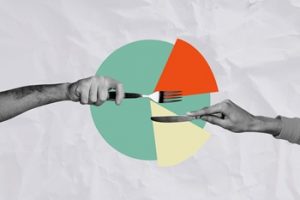Augmented supply chains are one of the most dramatic results of what’s known as Industry 4.0, with new technologies at the heart of a permanent evolution toward more interconnected practices, breaking down barriers to how products are exchanged and sold.
For small- and mid-sized farmers, increased digitization has the dual potential of blazing new paths to wider markets, while also vouching for safety, sustainability, and descriptive definitions of their unique specialty crops. These industry players have historically struggled with visibility beyond local levels, lacking both a virtual presence for greater market reach and the financial liquidity to take on additional risk in production and distribution. In many ways, digital tools level the playing field by offering solutions to these challenges.
Over the past few years, discussions of the increased presence of technology in agricultural operations have been in the context of external disruptions to the supply chain, effectively suggesting its best or only use is during crisis response. But, as McKinsey & Co. notes, optimizing farming operations with agtech will be essential in delivering 50% more and better food in the next two to three decades.
For certain, there is no switch that can be flipped to activate these shifts and their benefits overnight. Change will take more widespread implementation of smart farming, with tools like blockchain and digitally powered consortiums breaking down barriers between suppliers and purchasers, as well as fueling greater traceability and transparency.
Yet more and more, the resources for taking this kind of action are plentiful. Global venture funding for agtech has witnessed exponential growth, from just over $1 billion half a decade ago to $4.1 billion last year. Other research suggests that while blockchain’s worldwide market size in agriculture and food supply stood at more than $100 million last year, in five years, its share could explode in the billions.
The Seam helps to digitally connect suppliers of all sizes and agricultural product types to blockchain-powered industry platforms. For instance, the Open Market Consortium (OMC) — a partnership among The Seam, AgLaunch, Mississippi State University, Tennessee State University, and Wallace Center at Winrock International — aims to augment producers’ value propositions through the creation of new data standards for describing specialty-crop attributes, specialty farming practices, and counterparty contract execution. The goal is for the platforms to be more than just a database of sustainable farming practices, but also to facilitate transactions much in the same way an online store would, with a similar effect of reducing or, where possible, eliminating barriers to promote frictionless trade.
Blockchain is a foundational technology that powers the OMC, as well as cotton, peanut, and other industry intelligence platforms. It enables tracking the provenance of goods while also providing tamper-proof assurance through integrity and consistency of data. Product history is just one of many components of the OMC, with its primary feature-set focusing on data models that include nutrient content, aromatic properties, and flavor profiles accessible at the touch of a button.
The effects of these innovations are seen in new opportunities that strengthen profits for producers and offer greater visibility for the variety of agricultural products that are produced throughout the U.S. Consumers overwhelmingly want to know where the food on their table comes from, the nutritional content, and more. These questions can ultimately be answered through these tools.
Apprehension and criticism frequently accompany the expansion of new technology. But, when it comes to agriculture, both are misplaced. Seldom do we stop to think which changes have highlighted gaps in the status quo, making the case for more widespread adoption.
For the reasons above and more, this revolution will continue, for the sake of healthier supply chains, confident consumers, and more empowered producers everywhere.
This article originally appeared in the Memphis Business Journal.




